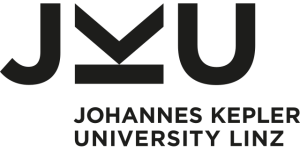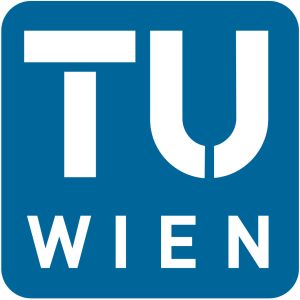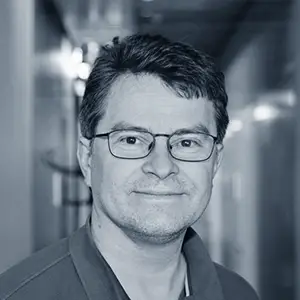Water Resource Management Cluster – Automata Learning and Verification for Digital Twins in Wastewater Systems
Hosting Institution:
Supervisors:
Description:
Digital Twins (DTs) augment cyber-physical systems (CPSs) by offering a real-time, virtual representation of physical processes, enabling tasks such as predictive maintenance, anomaly detection, and system optimization. In wastewater treatment, DTs can provide a paradigm shift in monitoring and operational intelligence. However, their broad adoption is impeded by a lack of interpretability, robustness, and trustworthiness.
This project aims to address these limitations by developing a hybrid learning-based DT framework, integrating data-driven models with formal, symbolic representations and reasoning. This Bilateral AI approach leverages synergies between subsymbolic (neural networks) and symbolic (e.g. automata) learning methods.
The central vision is to create trustworthy DTs that:
- Are learned from sensor data using both, deep and reinforcement learning.
- Produce interpretable and formally verifiable behavior models via automata learning.
- Support run-time monitoring and decision support, e.g., for fault detection and controller synthesis.
The focus of this PhD topic lies in developing a learning pipeline that transforms multivariate time-series data from wastewater plants into a compositional, symbolic abstraction (e.g., Markov Decision Processes) that can be verified and used for decision-making. This abstraction layer enables robust and explainable system behavior modeling, even in the presence of data scarcity or noise. The main research questions are:
- How can hybrid learning methods combine the strengths of machine learning and automata learning for modeling wastewater processes?
- How can symbolic abstractions of DT behavior be automatically learned and updated in real time?
- How can the learned models be verified against sustainability constraints (e.g. energy use, emissions)?
- How can explainable fault detection and diagnostics be implemented on top of these models?
This aligns with the goals of the Water Resource Management Cluster by contributing the symbolic AI and verification perspective to a shared digital twin architecture.
Please direct job applications to the JKU Career Portal, Job Reference Number 34200-2025-001722.
Sustainable Water Recovery via Advanced Flotation and Computational Modelling
Hosting Institution:
Supervisors:


JKU


TU Wien
Description:
Water scarcity and complex pollutants demand advanced treatment technologies beyond conventional methods. Flotation – where bubbles capture and remove fine particles and oils – offers a compact and efficient solution but remains limited by poor ultrafine particle capture, high energy demand, and incomplete understanding of the underlying hydrodynamics.
This PhD project investigates how microscale turbulence affects bubble–particle interactions in flotation and how this knowledge can enable sustainable, energy-efficient water treatment. Experiments in TU Wien’s devices will use high-resolution Tomographic PIV to capture collision and attachment dynamics under controlled turbulence. Results will be linked to flotation tests at JKU Linz, integrating findings with CFD–Population Balance Models and machine learning for predictive process optimisation. Expected outcomes include the first detailed maps of bubble–particle behaviour in homogeneous turbulence, validated multiscale models, and guidelines for improved disperser and bubble design. The project will form a cornerstone of a research cluster uniting TU Wien and JKU Linz to develop next-generation, low-energy flotation systems supporting water reuse and circular-economy goals.
Preferred background:
- Fluid mechanics, chemical/process engineering, or computational modelling;
- Experience with CFD, multiphase flow, or experimental diagnostics advantageous.
Currently no further applications are possible.
Human-AI Interaction for Sustainability (HAI4S): Green Prompting Strategies and Eco-Feedback for Efficient Use of Large Language Models
Hosting Institution:
Supervisors:


JKU


TU Wien
Description:
Large Language Models (LLMs) are now integral to daily life, yet their immense computational needs create a growing environmental burden. While current efforts to make AI sustainable focus on more efficient models and data centers, the human side of this challenge remains largely unexplored. The HAI4S project shifts this perspective by investigating how user behavior, interface design, and psychological factors can make everyday LLM use more energy- and resource-efficient. The project develops and tests green prompting strategies and eco-feedback mechanisms that help users understand and reduce the computational footprint of their interactions with LLMs. Combining methods from Psychology, Human-Computer Interaction, and Artificial Intelligence, it explores how transparency about energy use, real-time eco-explanations, and intuitive interface design can motivate more sustainable engagement without compromising user experience.
Qualification Profile:
- Diploma or master’s degree in Psychology/Human-Computer Interaction/Communication Studies, OR in Computer Science/Artificial Intelligence; with a clear willingness to acquire complementary disciplinary competencies to the extent required by this project
- Good knowledge of empirical research methods and data analysis techniques, ideally prior experience in empirical research on human-machine interaction
- Clear and precise academic writing skills, particularly for preparing scientific manuscripts
- Very good English proficiency (C1); German skills are an advantage
- Analytical thinking, attention to detail, and reliability
- Willingness to work in interdisciplinary and transdisciplinary teams, strong social skills
- Strong motivation to pursue a dissertation (cumulative, based on several high-quality journal and conference papers)
Currently no further applications are possible.
Reducing the Computational Complexity of Dynamic Global Vegetation Models
Hosting Institution:
Supervisors:


JKU


TU Wien
Description:
Climate change disrupts vegetation, biodiversity, and biogeochemical cycles, weakening the biosphere’s ability to absorb carbon. Scientists use Dynamic Global Vegetation Models (DGVMs) to study how ecosystems respond to changing climate and land use.
The LPJmL model simulates vegetation, crops, and nutrient cycles under different climate conditions. A newer version, LPJmL-FIT, includes plant trait ecology to better represent biodiversity effects. Currently, it covers four of the seven global biomes. However, simulating thousands of forest patches per grid cell is computationally demanding. Despite parallelization methods like OpenMP, computing time remains high, and GPU acceleration is not yet feasible due to the model’s structure. As so far little has been done to optimize older, computation-heavy routines, as, e.g., processes for photosynthesis, water stress, and carbon allocation. Additionally, light absorption, evapotranspiration, and nutrient uptake further increases the complexity of the computation, we focus in our research project on optimizing and accelerating existing and new models components within LPJmL-FIT. This in particular includes the model’s equilibrium calculations (spin-up). The overall goal is to support the transformation of LPJmL-FIT into global biodiversity–ecosystem model.
Qualification Profile:
- Very good knowledge of applied mathematics, especially in the field of inverse problems and mathematical modeling.
- Programming skills are an advantage, ideally with knowledge of C, Matlab, Python, etc.
- Willingness to write a doctoral thesis
- Very good knowledge of English, both spoken and written (level B2 and above)
- Knowledge of German is not mandatory but will be considered an advantage.
Currently no further applications are possible.
Flattening the Curve: Computational Approaches for Load Forecasting and Policy Impact Assessment toward Cost-Effective and Sustainable Power Grids
Hosting Institution:
Supervisors:


JKU


TU Wien
Description:
Europe’s transition to renewable electricity requires massive grid investments, largely driven by infrequent peaks in capacity demand. The project develops computational methods to reduce these costs by enabling more efficient grid use through advanced load forecasting and policy simulations. We model representative grid areas using detailed load and generation data to identify and predict critical positive and negative peak loads — caused by concentrated demand or excess renewable production. Using machine-learning and physics-informed models, we improve short-term forecasts and assess regulatory and tariff-based interventions that could flatten the load duration curve. By quantifying the impact of such measures on demand for grid capacity and investment needs, the project provides a scientific foundation for cost-effective and sustainable power-grid design.
Qualification Profile:
- Applicants should hold a Master’s degree in computer science, engineering, mathematics, statistics, physics, or a related discipline.
- Solid knowledge in data analytics or high-performance computing is required; experience in energy systems or machine learning is advantageous.
- Curiosity for interdisciplinary research at the intersection of computational methods, energy policy, and sustainability is essential.
Please direct job applications to the JKU Career Portal, Job Reference Number 151080-2025-001550.
Quantum many-body phenomena in organic molecular materials
Hosting Institution:
Supervisors:


TU Wien


TU Wien


ISTA


JKU
Description:
Materials consisting of organic molecules such as hybrid organic-inorganic perovskites (HOIP) offer small weight, mechanical flexibility, chemical tunability, and can be synthesized from renewable sources, which opens a plethora of applications in photonics, spintronics, and organic semiconductor technology. Current simulations of organic molecules and materials largely neglect the effects of electron-electron interaction, which can lead to both quantitative as well as qualitative changes of our theoretical understanding. In particular, the quantum nature of the electron-electron interaction and the related many-body phenomena have to be accounted for in order to achieve a detailed understanding of the basic mechanisms underlying their physical behavior which will allow to optimize their efficiency.
The aim of this project is to develop theoretical tools to reveal, explain, and predict the effects of electron-electron interactions in HOIP and other molecular materials via the derivation and the calculation of fundamental models. In particular, this requires the use of suitable computational approaches that go beyond the current classical description. The analysis of the quantum many-body phenomena in HOIP models will provide insights into currently unexplained phenomena, such as, e.g., long electron lifetimes of HOIP making them excellent solar-cell materials, and foresee possible applications through material engineering.
Qualification Profile:
- Relevant Master’s degree in Physics or related disciplines.
- background in theoretical and/or computational physics, experience in quantum many-body methods is helpful but not mandatory.
- CV with certificates and grades from bachelor and master studies, a brief motivation letter, and the contact data of at least one referee who can provide a letter of recommendation upon request (if not requested anyways).
Please direct job applications to the TU Wien job portal.
Analog hardware design for energy-efficient state-space models
Hosting Institution:
Supervisors:


TU Wien


JKU
Description:
Towards energy-efficient artificial intelligence, we will investigate deep learning and AI models that are compatible with energy-efficient analog hardware.
The broad vision is that network units that communicate information via electrical conductance (akin to synapses connecting neurons in the biological brain) might emerge as an energy-efficient alternative to implement deep learning algorithms. Concretely, memristor cross-bar arrays are an example of a promising physical computing substrate, enabling very fast matrix multiplication using Kirchhoff’s laws. The purpose of this project will be to rethink deep learning models like state-space models and transformers towards an implementation that is compatible with such alternative energy-efficient hardware.
Qualification Profile:
- The ideal candidate has strong skills in deep learning programming and machine learning theory.
- Required: genuine research interest in alternative energy-efficient computing paradigms or brain-inspired computing.
- Relevant master’s degrees in Computer Science, Mathematics, Physics, or related fields.
- Experience and strong motivation to do deep learning programming with PyTorch and JAX (and possibly CUDA) is a strong plus.
- Mathematical rigor and genuine curiosity for low-level computer architecture, analog computing devices, neuroscience research, or neuromorphic computing are a plus.
Please direct job applications to the TU Wien job portal.
Unveiling the Resource Footprint of Hybrid Classic-Quantum Systems
Hosting Institution:
Supervisors:
Description:
In theory, quantum computing offers potential exponential improvements in efficiency for certain computational problems. Quantum machines, however, bring in overheads not present in classical systems, such as device calibration, error correction, cryogenic cooling, and significant data pre- and postprocessing. Currently, the quantum computing field is characterized by hybrid systems that integrate sequential and parallel classical processing with quantum machines. In the ResQ project, we are establishing a foundational framework for understanding hybrid quantum–classical systems, with the goals of estimating their resource requirements and developing the essential building blocks for future quantum operating systems. A central focus is the overhead imposed by the classical systems that control quantum hardware. This includes investigating the computational cost of classical simulations utilized to assess the properties of the simulated quantum state, as well as quantifying the “burn-in” and calibration phases in a platform-independent manner. By providing a clear, comparable assessment of these costs across different quantum architectures, we aim to create the basis for informed performance evaluation and system design.
Qualification Profile:
- A Master’s degree in fields such as computer science/engineering, mathematics, statistics, data science, or physics is required.
- A solid foundation in high-performance computing (HPC) systems or quantum computing is essential—experience in both areas is preferred. If lacking expertise in either area, an eagerness to learn and develop knowledge in HPC or quantum computing is necessary.
- Basic knowledge of operating systems and machine learning.
Please direct job applications to the TU Wien job portal.
AI-Assisted Multiscale Modeling of Biocomposites
Hosting Institution:
Supervisors:


TU Wien


JKU
Description:
The PhD project AIM@Biocomp aims to develop an AI-assisted multiscale modeling framework for plant fiber reinforced biocomposites. This is a class of sustainable materials gaining traction in construction due to their excellent mechanical properties and low environmental impact. However, their complex, anisotropic microstructure and nonlinear behavior present significant challenges for conventional modeling techniques. Analytical methods often lack the flexibility to capture geometrical complexities, while finite element (FE) simulations are computationally intensive. Artificial intelligence models, though powerful, frequently suffer from insufficient training data in this domain, making the integration of physical principles critical to achieving reliable predictions.
This project proposes an innovative hybrid modeling approach to bridge these gaps. Parameterized FE simulations of representative microstructures are used to train Deep Material Networks (DMNs), which are then embedded into analytical micromechanics models. This combination offers both accuracy and computational efficiency across scales, supporting material-informed and resource-efficient design. It enables predictive modeling for novel bio-based materials and ultimately their effective integration into digital fabrication workflows for future building elements.
Qualification Profile:
Relevant Master’s degree (e.g., Civil Engineering, Mechanical Engineering, Material Science, Computational Engineering, Physics, Mathematics).
Desired:
- Strong background in mechanics of materials.
- Experience in programming (e.g., Python, Julia).
- Knowledge of the finite element method.
Knowledge of OR interest in these areas:
- AI or machine learning methods, preferably physics-enhanced models.
- Finite element modeling and continuum micromechanics.
- Nonlinear material modeling.
- Multiscale modeling of composite or heterogeneous materials.
- Interdisciplinary research at the interface of engineering and AI.
Please direct job applications to the TU Wien job portal.
Markov-Nyström Sustainable Neural Networks
Hosting Institution:
Supervisors:


TU Wien


JKU
Description:
This PhD position will radically rethink how neural networks learn from massive amounts of data in order to reduce the energy consumption of machine learning. While machine learning and artificial intelligence algorithms are becoming better and their use is becoming more wide-spread, our environment suffers from the enormous energy consumed in data centers around the world for training them. Key to massive reductions in energy consumption and carbon production will not be small changes to existing algorithms. Therefore, this PhD topic will take a fresh look at deep neural networks and stochastic gradient descent as two finite Markov chains, investigate ideas to combine them to reduce energy consumption by an order of magnitude, and combine this with ideas from low-rank approximation to reduce energy consumption by another order of magnitude.
Qualification Profile:
- Very good master’s level degree in (Computer Science, Mathematics of related field) or expectation to obtain one within a few months.
- Thorough knowledge of machine learning and/or related areas.
- Programming experience and strong background in the mathematical foundations of machine learning.
- Strong interest in machine learning theory and algorithms with a willingness to apply the algorithms to real data.
- Initial experience with research projects (e.g., thesis, internships, publications).
- Curious and highly motivated for scientific research.
- Ability to work independently as well as in a team.
- Very good spoken and written English. Knowledge of German (language level B2) or willingness to learn it in the first year.
Please direct job applications to the TU Wien job portal.
Towards Sustainable LLMs
Hosting Institution:
Supervisors:
Description:
Large Language Models (LLMs) based on transformer architectures have revolutionised artificial intelligence, becoming central to the daily life. However, despite their power, these models are unsustainable, requiring massive computational resources for both training and inference. This project envisions a new generation of sustainable LLMs based on non-linear structured state space models (SSMs). These models leverage small, unfolded recurrent neural networks to process inputs efficiently in linear time during training and constant time during inference, offering a significant improvement over transformers, whose costs grow quadratically.
The research investigates how non-linear, input- and state-dependent dynamics in SSMs affect prediction accuracy and energy efficiency compared to linear SSMs, traditional RNNs, and transformer-based models. It further explores the potential for scalable parallel training and inference, as well as architectural innovations that enable efficient use of non-linear SSMs. Drawing inspiration from breakthroughs in image processing, such as convolution and inverted bottlenecks, we aim to integrate such architectural motifs here too.
This project contributes to the democratization of LLMs by making them more accessible, efficient, and environmentally responsible through novel architecture design and parallelism strategies.
Qualification Profile:
- Relevant Master’s degree (e.g., Computer Science/Informatics, Artificial Intelligence, or related disciplines).
- Machine learning: Prior experience with neural network architectures, including RNNs, transformers, or SSMs. Interest in biologically inspired models.
- Programming skills: Proficiency in Python and common ML frameworks (e.g., PyTorch, Jax).
- Theoretical foundations: Familiarity with control theory, signal processing, or dynamical systems would be a bonus for the candidate.
- Efficient computing: Interest or experience in algorithm optimization, parallel computing, and sustainable computing is highly desirable.
- Research experience: Prior involvement in research projects, internships, or publications is beneficial.
Please direct job applications to the TU Wien job portal.
Sustainable AI for Green and Energy-efficient Chemistry
Hosting Institution:
Institute of Materials Chemistry

TU Wien
Supervisors:


TU Wien


JKU
Description:
This project aims to develop efficient AI systems for chemical reaction prediction, with a particular focus on catalyzed reactions central to green chemistry. Current state-of-the-art approaches often suffer from inefficiencies due to limitations in data representation or model architecture. For example, generative models like diffusion models, used for transition state prediction, attempt to represent all degrees of freedom, despite the inherently constrained nature of chemical reactions.
To address these challenges, the project will explore strategies to improve efficiency at multiple levels:
- Development of smarter representation of reactions, including novel string-based encodings and multimodal representations.
- Imposing domain-informed constraints on predictive and generative models, particularly for reactions involving green catalysts such as organocatalysts and biocatalysts.
- Adapting compact, data-efficient methods from computer vision for medical imaging, a field with which we share the challenge of interpreting complex data with strong spatial as well as temporal components. This can include, for example, transfer learning, spatial-temporal model architectures, and generative augmentation techniques.
Qualification Profile:
- Master’s degree in a relevant field (e.g., Computer Science, Bioinformatics).
- Strong theoretical and applied background in machine learning.
- Previous involvement in ML projects related to biomedical applications.
- Proficient programming skills (e.g. Python) and experience with ML frameworks such as PyTorch.
- Familiarity with software engineering workflows and working on compute clusters such as Slurm.
- Knowledge of or interest in:
- Chemistry
- Sequence-based models and graph representation learning.
- Computer vision applications (e.g. brain imaging).
Please direct job applications to the TU Wien job portal.
Integrated Models for Parameterization and Exploration of Surface Alloys for Sustainable CO2 Reduction (IMPRESS)
Hosting Institution:
Supervisors:


TU Wien


TU Wien
Description:
IMPRESS targets a fundamental challenge in sustainable materials science: discovering efficient copper-based surface alloys for catalytic CO2 reduction using earth-abundant elements. While evolutionary algorithms have been used to navigate in searching for new structures, they rely on static heuristics and do not learn from past searches. IMPRESS proposes a new approach: diffusion models integrated into evolutionary searches. Diffusion models act as intelligent, adaptive generators of new candidates. Classifier-free guidance allows these models to condition generation on desired traits, like catalytic activity and stability.
The research addresses open questions about integrating generative models into structure searches, enforcing physical symmetries via geometrcal deep learning, and designing datasets that avoid bias while covering diverse systems. Beyond advancing CO2 reduction technology, IMPRESS aims to build general-purpose methods for sustainable, AI-driven materials discovery at the atomic scale.
Qualification Profile:
- Relevant Master’s degree (e.g., Computer Science/Informatics, Data Science, Chemistry, Physics, Materials science).
- Desired: Experience in programming languages such as Python.
- Knowledge of OR interest in these areas:
- Machine learning.
- Quantum chemistry
- Catalysis
Please direct job applications to the TU Wien job portal.
Embedding for Sustainable Modeling of Catalysis
Hosting Institution:
Supervisors:


TU Wien
Description:
Electrocatalysis plays a central role in the sustainable energy transition, enabling the conversion of carbon dioxide into fuels and chemicals using renewable electricity. A major challenge is the rational design of catalysts with high activity, selectivity, and stability. This project develops a multiscale computational framework to model such systems for single-atom catalysts embedded in carbon supports, with a focus on high accuracy and efficiency. We focus on transition metals (Fe, Co, Ni, Cu) coordinated by nitrogen atoms in graphene. Their performance depends sensitively on their local electronic structure, making predictive modeling essential. We combine density-functional theory with wavefunction-based embedding and Delta-machine learning to achieve coupled-cluster (CCSD(T)) accuracy at a fraction of the cost. Within the project, we will collaborate with the Schöfberger group at the JKU, where they will synthesise and benchmark the catalysts, providing experimental results to validate and improve our predictions. By combining experiment and theory, we aim to develop an efficient yet accurate transferable method to model single-atom catalysts in realistic working conditions.
Qualification Profile:
- Strong background in computational condensed matter or quantum chemistry.
- Master’s degree (or equivalent) in physics, chemistry, materials science, or a related field, with demonstrated expertise in electronic structure theory (e.g., density-functional theory or related ab initio methods).
- Solid programming skills (Python, C/C++, or Fortran).
- Experience with high-performance computing, machine learning, or advanced electronic structure techniques (coupled-cluster theory, embedding methods) are a plus.
Please direct job applications to the TU Wien job portal.
In-Silico Design of Green Ni-Based Catalysts for Sustainable CO₂-to-Heterocycles Conversion– Leveraging (AI enhanced) Multiscale Modelling
Hosting Institution:
Institute of Materials Chemistry

TU Wien
Supervisors:


TU Wien


JKU
Description:
We are seeking a PhD candidate to develop computational strategies for designing efficient Ni-based catalysts that convert CO₂ into valuable 2-pyrone derivatives. The project combines quantum chemistry, high-throughput screening, and AI-enhanced simulations to accelerate catalyst discovery.
The candidate will:
- Elucidate reaction mechanisms of Ni–ligand complexes with α,ω-diynes using DFT, including inner- vs. outer-sphere CO₂ insertion.
- Identify efficient catalyst designs by automated screening of ligand libraries (NHC, diphosphine, P–NHC), focusing on transition states and reactivity trends.
- Assess solvent effects on catalytic performance using the Buffer Region Neural Network (BuRNN) approach, with the aim of identifying greener solvent alternatives.
- Ensure computational efficiency and data reusability through workflow automation and electronic lab notebooks.
- Collaborate with experimental partners to validate catalyst performance and iteratively refine models.
The project offers the opportunity to work at the interface of theoretical chemistry, machine learning, and green catalysis, with strong collaboration across computational and experimental groups.
Qualification Profile:
The successful candidate should demonstrate:
- Strong background in computational/theoretical chemistry, physics, or materials science (e.g., quantum chemistry, catalysis, molecular modeling).
- Experience with electronic structure methods (DFT, wave function theory) and interest in reaction mechanism analysis.
- Familiarity with molecular dynamics or QM/MM methods is desirable; knowledge of machine learning in chemistry is an advantage.
- Programming and workflow automation skills (e.g., Python, automation toolkits) to enable high-throughput calculations.
- Interest in sustainable chemistry and CO₂ utilization through catalyst and solvent design.
- Ability to work in an interdisciplinary, collaborative environment, interacting with computational and experimental groups.
- Good communication skills in English (B2) and commitment to presenting and publishing results, German skills are a plus.
- Motivation for independent, curiosity-driven research and readiness to expand skills in new computational methods.
Please direct job applications to the TU Wien job portal.









